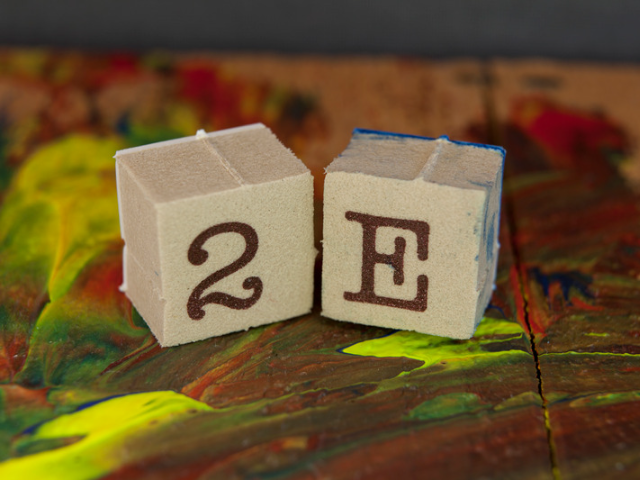According to Child Mind Institute, children with exceptional ability and disability tend to be labeled as ‘twice-exceptional or ‘2E’. 2E Kids tend to be gifted. They also have learning challenges in a traditional educational setup. Even if identified, 2E kids may not get the support and environment they need to thrive. As the mom of a 2E child and a pediatric therapist, I wanted to share some key learnings that could be very helpful to those of you with 2E kids. My goal is to educate and help the community understand that a learning difference or challenge doesn’t negate their talents/giftedness.
Facts about Twice Exceptional children
If you have a 2E kid, chances are you have experienced a lot of situations from the list below. The intent of this list is to help you validate your intuition and confidently demand the support you need from your community, school, or healthcare provider.
- 2E exceptional are gifted/talented students & present neuro divergence/different learning abilities.
- 2E kids often fall through the cracks of the school system.
- 2E students develop asymmetrically – meaning that their development is scattered – advanced in some areas and perform at a lower level than expected in other areas.
- 2E students are often misunderstood and are mislabeled especially by their teachers.
- 2E kids may not qualify for special education programs like IEP or 504. Many kids may have good enough grades on their report cards and still struggle with many aspects of learning.
Perceptions and stigma around Twice Exceptional children
I often hear “she doesn’t look like she has ADHD” or communication difficulty. My child has a strong vocabulary and doesn’t have trouble articulating because of her giftedness (math & abstract reasoning), but she can’t seem to find the right “words” to express herself sometimes. She is also “oversensitive” and has big deep emotions!
Stigma is still a big thing in our current times and the only way to change others’ perceptions is education and awareness. Our kids need support as well, and advocating is vital.
Learning Disabilities
First, here is a list of common disabilities in 2E.
- Dyslexia
- Dysgraphia – writing disability
- Dyscalculia – math disability
- Processing disorders (sensory – visual, auditory, CAPD)
- ASD, Aspergers, Autism
- Dyspraxia, Sensory integration, fine motor problems
- Dysphasia – problems understanding language
- Speech & language
- ADHD, attentional, executive function
- TBI Traumatic Brain Injury
- Emotional disorders, mood disorders, depression, anxiety, OCD, etc.
- Physical disabilities
Giftedness
Next, here is a list of common giftedness in 2E.
- IQ, GT is often thought of as 130+, 160+ is often considered profoundly gifted.
- Academically gifted – math, science, language arts, etc.
- Artistically – art, music, dance, etc.
- Kinesthetically gifted
- Athletically gifted
- Verbal ability
- Visual-spatial
- Problem-solving ability, original, unique ideas
- Abstract thinking, flexible thinking, highly creative, insightful
- Gardner’s Multiple Intelligences: musical, interpersonal, intrapersonal, logical-mathematical, linguistic, naturalistic, visual-spatial, bodily/kinesthetic
- Asks profound questions, High-level thinking
- Intuitive or spiritual, “indigo kids.”
- Unusually observant in strength areas, learns very quickly in strength areas.
- Can communicate in a very mature way (sometimes being incredibly immature at other times)
- Enjoys intellectual challenges
- Advanced sense of humor
- Remembers a lot of details easily
- Crave learning and intellectual stimulation
Great Reads about 2E
- A thorough article on twice exceptional kids from Child Mind Institute.
- Complete Guide to Advocacy
- Twice Exceptional student – Perspectives from the National Association of Gifted Children
- 7 myths about Twice Exceptional Kids
- Twice Exceptional – a legal perspective from Wrights Law
Finally, raising a twice-exceptional child is full of awe, wonder, and challenges. Knowing that your child is unique and has specific gifts as well as some obstacles helps us parent with understanding and create a supportive atmosphere for them to thrive. We must advocate for what our kids need from schools. Furthermore, we also need to prevent others from stigmatizing or judging our children.

